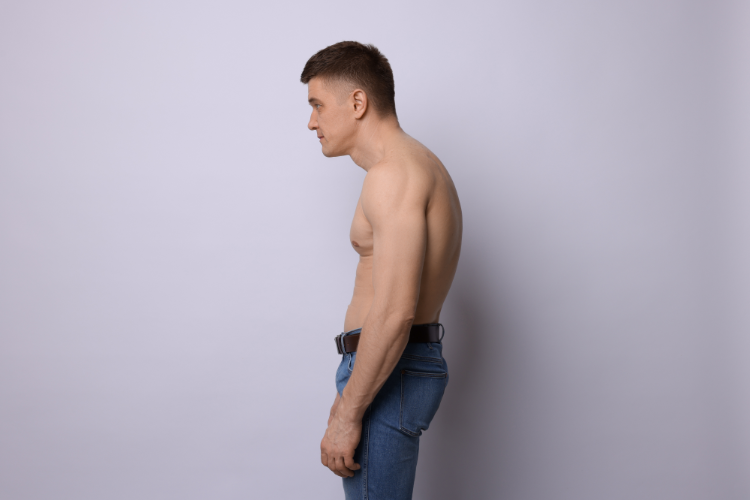The best runners don’t just run fast—they recover well, adapt quickly, and stay consistent.
If you’ve ever been knocked off your training plan by a sore knee, tight hip, or stubborn Achilles, you already know: running isn’t just about moving forward. It’s about keeping your body aligned with your goals.
And here in Harlem and Morningside Heights, we treat runners every week who aren’t looking for shortcuts—they’re looking for longevity.
>>>Request a runner-focused movement assessment and keep your stride strong for the long run.
One Body. Thousands of Strides.
Running feels simple. But behind every step is a complex pattern of neuromuscular timing, joint motion, and force distribution. When even one element is off, your body starts compensating—quietly at first, then painfully.
We’ve helped marathoners who lost power at mile 16. Recreational runners who couldn’t shake a shin splint. Columbia students whose tight hips turned into chronic knee pain. The pattern’s the same: when something isn’t working, something else works too hard.
The fix? Stop guessing and start listening to what your body’s been trying to say.
Signs Your Stride Needs Support
Before pain becomes a full-blown injury, it usually sends a few warning shots. If you catch them early, you can correct your course before downtime takes over.
Look for these early signs:
- Discomfort that lingers beyond 24 hours after a run
- A stride that feels shorter, heavier, or uneven
- A new reliance on one leg for push-off or landing
- Pain that only shows up at certain speeds or distances
- A gradual increase in stiffness, especially after sitting
These aren’t normal growing pains. They’re signals of overload—and they can be reversed before they turn into tears, strains, or stress fractures.
What Runners Really Need From Therapy (It’s Not Ice and Rest)
When you walk into our clinic, we’re not handing you a sheet of generic stretches. We’re watching how you move, how your body reacts to force, and where your system breaks down under repetition.
For tight calves that won’t let go, we use Active Release Technique (ART) to release tissue without losing power. For hip and spine issues that limit control, we rely on Manual Therapy to restore mobility and fluid motion.
When form is part of the problem—which it often is—we incorporate Pilates for Rehab to re-educate your body to run with better posture, core control, and single-leg strength.
Returning from injury? NEUBIE Therapy helps retrain movement patterns at the neuromuscular level, so you rebuild faster and smarter—not just stronger.
And when inflammation or muscle fatigue is blocking recovery, we turn to Cupping Therapy and Low-Level Laser Therapy to promote circulation and pain relief—without the need for medication.
Don’t Skip the Work Between the Runs
The miles you log are only half the equation. The way you train between runs is what keeps you from breaking down mid-cycle or burning out.
Here’s what every runner should be doing to stay consistent:
- Strength training at least twice a week, focused on unilateral (single-leg) control
- Mobility work post-run, targeting hips, spine, and ankles
- Dynamic warmups before every run, not just static stretches
- Regular rest days, including off-feet recovery options
- Running on varied surfaces to reduce overuse in joints and tendons
These habits aren’t optional—they’re part of what makes your next run possible.
Don’t Wait for an Injury to Get Smarter
Too many runners come to us only after their pain has derailed their training or canceled their race.
We get it—you love the rhythm, the routine, the way a run clears your head. But when your body whispers “this isn’t working,” you can either adjust or get forced to stop.
The smart move isn’t pushing through. It’s checking in.
That’s why we encourage runners in Morningside Heights and Harlem to use therapy proactively—like a tune-up, not just a repair.
You’re Not a Jogger. You’re an Athlete.
Running isn’t just cardio. It’s demand. On joints. On timing. On recovery.
We treat you like the athlete you are, whether you’re chasing your PR or your peace of mind. That means looking at the entire picture—how you move, how you recover, how you manage stress, and how your body reacts to training volume.
You don’t need more motivation. You need better movement. That’s where we come in.
Ready to Train Smarter?
You don’t need a new pair of shoes or a new playlist. You need a strategy that supports your stride from the ground up.
Whether you're training for a marathon or just want to run pain-free through the park, our team is ready to help you move better, recover faster, and stay injury-free for the long run.
Call us at 212-222-6525 or request an appointment online. Expert running care is available right here in Harlem and Morningside Heights—no referral, no waiting, no limits.







